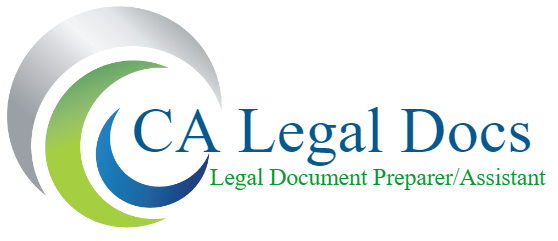
LDAs and UDAs
Legal-document assistants provide, for compensation, self-help assistance to members of the public who are representing themselves in legal matters.
In 2000, legislation was enacted in California authorizing non-lawyers to prepare legal documents for people performing their own legal work.
About Legal Document Assistants in California
Preparing legal documents can be intimidating and many California residents seek assistance from an attorney when feeling overwhelmed, but there’s another option – Legal Document Assistants!
The pressure to know the law and complete forms correctly can be daunting for those trying to do everything themselves. Depending on your legal needs, there may be a more affordable alternative to hiring an attorney. Under California statutory law, certain types of legal services can be performed by Legal Document Assistants (LDAs). Legal-document assistants provide, for compensation, self-help assistance to members of the public who are representing themselves in legal matters. Under no circumstances can they provide legal advice or opinion, but they are permitted to: 1) prepare legal documents; 2) provide attorney-authored general information and published legal documents; and 3) file and serve documents at the direction of the client.
LDAs and UDAs
LDAs are often confused with paralegals and legal assistants, but consumers should be aware the crucial differences between the professions. Paralegals and legal assistants, by definition, perform substantive legal work under the supervision of a licensed attorney. Having an attorney representing you, it’s likely that the attorney will have assistance from a paralegal or legal assistant. The paralegal or legal assistant will assist with research, and correspondence for your case. Ultimately, the attorney is responsible for the paralegal’s work product and can be held liable if a mistake is made. California Business and Professions Code § 6450 defines and describes the role of the paralegal, though laws will vary from state to state. For more information on professional requirements and duties, visit the California Association of Legal Document Assistants (CALDA), the National Association of Legal Assistants, the California Alliance of Paralegal Associations, or keyword search on the Internet.
NEW LEGISLATION
In 2000, legislation was enacted in California authorizing non-lawyers to prepare legal documents for people performing their own legal work. LDAs and UDAs are required to comply with Business and Professions Code §§ 6400-6415, governing registration procedures and conduct of business. They must complete the legally required education, maintain a $25,000 bond, and register with the county in which they work. They must inform clients that they are not lawyers. It must in their first interaction. They must disclose their registration number, registration expiration date and county of registration. Additionally, you must provide clients with a “Notice to Consumer” prior to conducting business. It is important that you also acknowledge that assistants have provided that information. The California Department of Consumer Affairs promulgates regulations relating to both professions, which can be found at ccr.oal.ca.gov.
LDAs are required to have a contract with each client. It must state the scope of their duties, status as a non-lawyer, and a disclaimer. The disclaimer must state they are prohibited from providing legal advice or opinion. Title 16 of the California Code of Regulations, Section 3890, lists contract requirements for unlawful detainer assistants, and Section 3950 addresses contracts for legal document assistants. Under state law, the client has the right to rescind the contract within 24 hours of signing.
LEGAL DOCUMENT AND UNLAWFUL DETAINER ASSISTANTS
Legal-document and unlawful-detainer assistants can assist you only in the completion, filing, and service of forms under your direction. If you are undecided on a legal course of action or would like someone to advise you on your legal rights, you may want to consult an attorney or research the matter yourself. Legal document assistants cannot lawfully provide legal advice or opinion. While unlawful detainer assistants are permitted more leeway, they must carefully follow statutory guidelines and, to ensure accountability, must provide their registration numbers on all filings for which they are responsible.
There are several ways to locate a legal-document or unlawful-detainer assistant in your area. The California Association of Legal Document Assistants (CALDA) provides a searchable database of registered members, though CALDA membership is not mandatory to become a legal document assistant under state law. Since county registration is mandatory, you can also consult your local county-recorder’s office; a directory is available at the Department of Public Health. To verify registration, ask to see the assistant’s ID card. Pursuant to Business and Professions Code § 6407, the county clerk maintains separate registries of legal-document and unlawful-detainer assistants and issues photo-identification cards to all registered and bonded assistants.
UNAUTHORIZED PRACTICE OF LAW
To report the unauthorized practice of law, contact local law enforcement, the district attorney’s office, or a local bar association. To file a complaint against a legal-document or unlawful-detainer assistant, see the Department of Consumer Affairs.
CALL CA LEGAL DOCS IN WALNUT CREEK, CA TODAY AND LET US SEE HOW WE CAN HELP!
IN ADDITION, WE ALSO HAVE A SATELITE OFFICE – CALL CA LEGAL DOCS IN NAPA, CA TODAY AND LET US SEE HOW WE CAN HELP!






